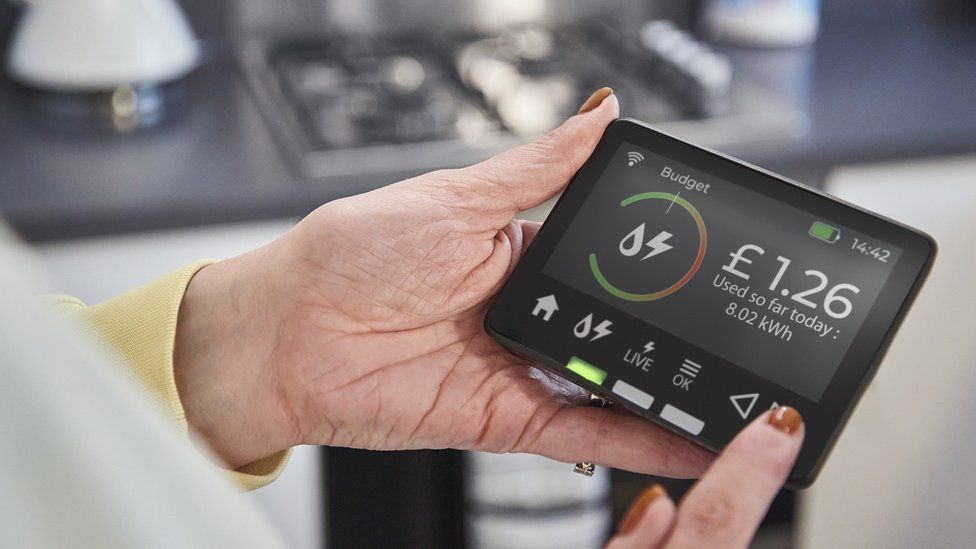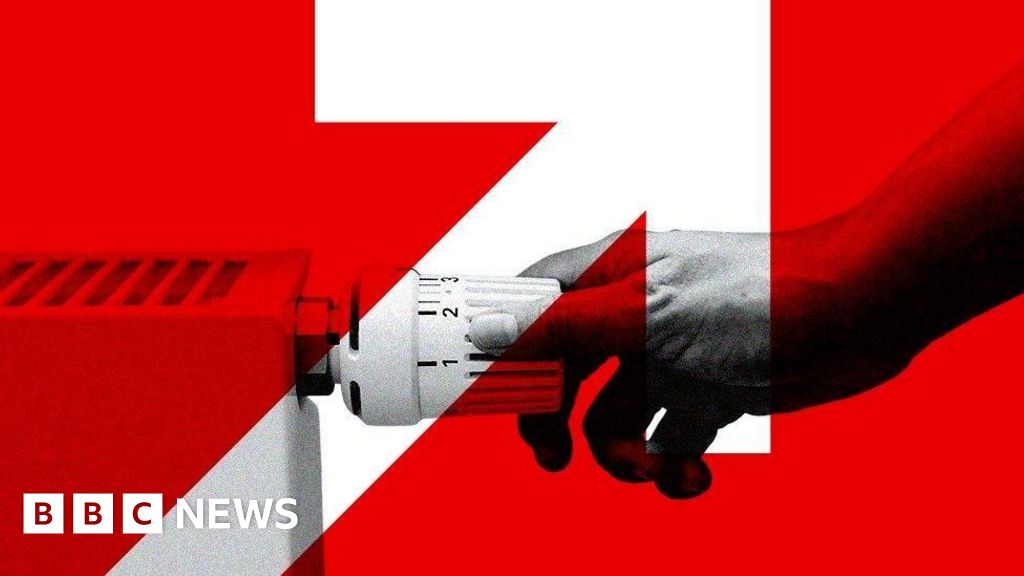ARTICLE AD BOX
 Image source, Getty Images
Image source, Getty Images
By Kevin Peachey
Cost of living correspondent
Charities are warning of a tough winter ahead for many people's finances despite a drop in domestic energy prices for the next three months.
The annual bill for a typical household falls to £1,923 from Sunday under regulator Ofgem's price cap.
It is £577 lower than last winter, but some government support has been withdrawn and bills are forecast to rise again in January.
But cost-of-living payments for some may help cover part of the cost.
Average annual gas and electricity bills remain high by historical standards. In winter 2021, an energy bill for a typical household was £1,277.
Matthew Cole, head of Fuel Bank Foundation, a charity that provides financial support for those on prepayment energy meters - who now pay a very similar amount to those using direct debit - said for these people the cost of topping up would be around £250 a month.
He said it is likely to lead some to skip meals and showers to keep up.
"For prepaying customers, when the money on the meter runs out and there's no means of topping up, so does the energy," he said. "No money equals no heat, hot water or fuel to cook a hot meal."
How the cap works
Ofgem's price cap affects 29 million households in England, Wales and Scotland. It sets the maximum amount that suppliers can charge for each unit of gas and electricity but not the total bill. If you use more, you will pay more.
For a home using a typical amount of gas and electricity and paying by direct debit, the annual bill will be £1,923 between now and 31 December, down from £2,074 previously.
Specifically, the price of gas is 6.89p per kilowatt hour (kWh), and electricity is 27.35p per kWh.
The typical bill is calculated on an estimate that the average household uses 2,900 kWh of electricity and 12,000 kWh of gas - although this calculation is set to change.
Those who pay bills every three months, often by cheque - known as standard credit - will pay £129 more a year than those using direct debit. Northern Ireland has a different system of price regulation.
Last winter, bill rises would have been higher had it not been for the government's Energy Price Guarantee limiting the typical bill to £2,500. Each household also received £400 of support over six months, but this year the government is yet to announce any equivalent scheme.
On Friday, analysts at energy consultancy Cornwall Insight said the typical annual bill was forecast to rise to £1,996 in January.
Charities are worried that the cumulative effect of high bills over the last two years will create ongoing problems for billpayers - even if energy prices dip in the future.
Shapia Kaur, a mum-of-four from Newport with a disability, said: "Balancing my money has been pretty much impossible.
"I had to re-think everything and budget hard to make the household work and to stay warm, but over the months and years, small debts have grown bigger. The biggest problem has been my water and energy bills.
"The price hikes of last year and the heating going on again in October this year have and will continue to hit me hard."
She spoke to her energy provider who recommended she use a form about the money she has coming in and going out, provided by a company called Income and Expenditure Hub, which she then sent to all her creditors to whom she owed money, in order to organise her debts.
A coalition of 140 organisations and MPs has called on the government to consider introducing a social tariff to help the most vulnerable with energy bills this winter.
A spokesperson for the Department for Energy Security and Net Zero said the government recognises "the cost-of-living challenges families are facing" and was providing "targeted support for the most vulnerable"
They said that three million households expected to benefit from the £150 Warm Home Discount, while "millions of vulnerable households will receive up to £900 in further cost-of-living payments.
Here are some energy saving ideas from environmental scientist Angela Terry, who set up One Home, a social enterprise that shares green, money-saving tips:
- Get a water-efficient shower head free of charge from your water company and use showers rather than baths
- Consider loft insulation, which she says costs around £680 for a typical semi-detached home and could save £285 a year on gas bills
- Hang out washing instead of using a tumble dryer, and walk instead of drive when possible
- Use windy days to feel where draughts are in the house. Wetting the back of your hand helps to locate them, then use insulation or draught-proofing tape
- Where available, press the smaller button to use less water to flush the toilet

 1 year ago
31
1 year ago
31








 English (US) ·
English (US) ·